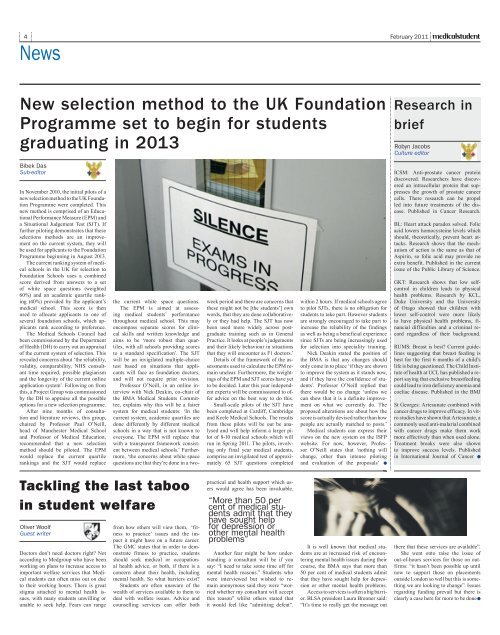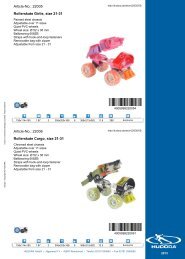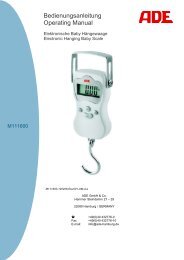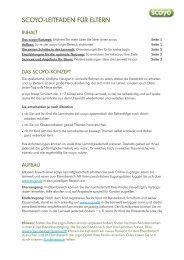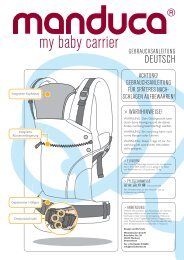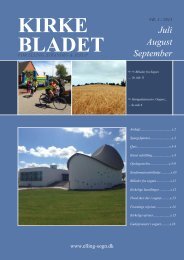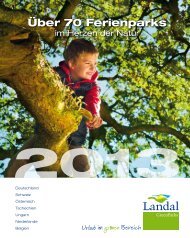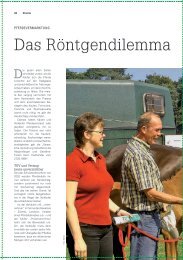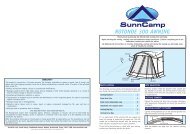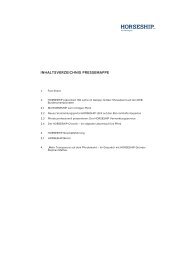Students stuck in medical school for seven years? - Amazon Web ...
Students stuck in medical school for seven years? - Amazon Web ...
Students stuck in medical school for seven years? - Amazon Web ...
Create successful ePaper yourself
Turn your PDF publications into a flip-book with our unique Google optimized e-Paper software.
4<br />
News<br />
New selection method to the UK Foundation<br />
Programme set to beg<strong>in</strong> <strong>for</strong> students<br />
graduat<strong>in</strong>g <strong>in</strong> 2013<br />
Bibek Das<br />
Sub-editor<br />
In November 2010, the <strong>in</strong>itial pilots of a<br />
new selection method to the UK Foundation<br />
Programme were completed. This<br />
new method is comprised of an Educational<br />
Per<strong>for</strong>mance Measure (EPM) and<br />
a Situational Judgement Test (SJT). If<br />
further pilot<strong>in</strong>g demonstrates that these<br />
selections methods are an improvement<br />
on the current system, they will<br />
be used <strong>for</strong> applicants to the Foundation<br />
Programme beg<strong>in</strong>n<strong>in</strong>g <strong>in</strong> August 2013.<br />
The current rank<strong>in</strong>g system of <strong>medical</strong><br />
<strong>school</strong>s <strong>in</strong> the UK <strong>for</strong> selection to<br />
Foundation Schools uses a comb<strong>in</strong>ed<br />
score derived from answers to a set<br />
of white space questions (weighted<br />
60%) and an academic quartile rank<strong>in</strong>g<br />
(40%) provided by the applicant’s<br />
<strong>medical</strong> <strong>school</strong>. This score is then<br />
used to allocate applicants to one of<br />
several foundation <strong>school</strong>s, which applicants<br />
rank accord<strong>in</strong>g to preference.<br />
The Medical Schools Council had<br />
been commissioned by the Department<br />
of Health (DH) to carry out an appraisal<br />
of the current system of selection. This<br />
revealed concerns about ‘the reliability,<br />
validity, comparability, NHS consultant<br />
time required, possible plagiarism<br />
and the longevity of the current onl<strong>in</strong>e<br />
application system’. Follow<strong>in</strong>g on from<br />
this, a Project Group was commissioned<br />
by the DH to appraise all the possible<br />
options <strong>for</strong> a new selection programme.<br />
After n<strong>in</strong>e months of consultation<br />
and literature reviews, this group,<br />
chaired by Professor Paul O’Neill,<br />
head of Manchester Medical School<br />
and Professor of Medical Education,<br />
recommended that a new selection<br />
method should be piloted. The EPM<br />
would replace the current quartile<br />
rank<strong>in</strong>gs and the SJT would replace<br />
the current white space questions.<br />
The EPM is aimed at assess<strong>in</strong>g<br />
<strong>medical</strong> students’ per<strong>for</strong>mance<br />
throughout <strong>medical</strong> <strong>school</strong>. This may<br />
encompass separate scores <strong>for</strong> cl<strong>in</strong>ical<br />
skills and written knowledge and<br />
aims to be ‘more robust than quartiles,<br />
with all <strong>school</strong>s provid<strong>in</strong>g scores<br />
to a standard specification’. The SJT<br />
will be an <strong>in</strong>vigilated multiple-choice<br />
test based on situations that applicants<br />
will face as foundation doctors,<br />
and will not require prior revision.<br />
Professor O’Neill, <strong>in</strong> an onl<strong>in</strong>e <strong>in</strong>terview<br />
with Nick Deak<strong>in</strong>, co-chair of<br />
the BMA Medical <strong>Students</strong> Committee,<br />
expla<strong>in</strong>s why this will be a fairer<br />
system <strong>for</strong> <strong>medical</strong> students: ‘In the<br />
current system, academic quartiles are<br />
done differently by different <strong>medical</strong><br />
<strong>school</strong>s <strong>in</strong> a way that is not known to<br />
everyone. The EPM will replace that<br />
with a transparent framework consistent<br />
between <strong>medical</strong> <strong>school</strong>s.’ Furthermore,<br />
‘the concerns about white space<br />
questions are that they’re done <strong>in</strong> a two-<br />
Tackl<strong>in</strong>g the last taboo<br />
<strong>in</strong> student welfare<br />
Oliver Woolf<br />
Guest writer<br />
Doctors don’t need doctors right? Not<br />
accord<strong>in</strong>g to Medgroup who have been<br />
work<strong>in</strong>g on plans to <strong>in</strong>crease access to<br />
important welfare services that Medical<br />
students can often miss out on due<br />
to their work<strong>in</strong>g hours. There is great<br />
stigma attached to mental health issues,<br />
with many students unwill<strong>in</strong>g or<br />
unable to seek help. Fears can range<br />
from how others will view them, ‘fitness<br />
to practice’ issues and the impact<br />
it might have on a future career.<br />
The GMC states that <strong>in</strong> order to demonstrate<br />
fitness to practice, students<br />
should seek <strong>medical</strong> or occupational<br />
health advice, or both, if there is a<br />
concern about their health, <strong>in</strong>clud<strong>in</strong>g<br />
mental health. So what barriers exist?<br />
<strong>Students</strong> are often unaware of the<br />
wealth of services available to them to<br />
deal with welfare issues. Advice and<br />
counsell<strong>in</strong>g services can offer both<br />
week period and there are concerns that<br />
these might not be [the students’] own<br />
words, that they are done collaboratively<br />
or they had help. The SJT has now<br />
been used more widely across postgraduate<br />
tra<strong>in</strong><strong>in</strong>g such as <strong>in</strong> General<br />
Practice. It looks at people’s judgements<br />
and their likely behaviour <strong>in</strong> situations<br />
that they will encounter as F1 doctors.’<br />
Details of the framework of the assessments<br />
used to calculate the EPM rema<strong>in</strong><br />
unclear. Furthermore, the weight<strong>in</strong>gs<br />
of the EPM and SJT scores have yet<br />
to be decided. Later this year <strong>in</strong>dependent<br />
experts will be commissioned to offer<br />
advice on the best way to do this.<br />
Small-scale pilots of the SJT have<br />
been completed at Cardiff, Cambridge<br />
and Keele Medical Schools. The results<br />
from these pilots will be out be analysed<br />
and will help <strong>in</strong><strong>for</strong>m a larger pilot<br />
of 8-10 <strong>medical</strong> <strong>school</strong>s which will<br />
run <strong>in</strong> Spr<strong>in</strong>g 2011. The pilots, <strong>in</strong>volv<strong>in</strong>g<br />
only f<strong>in</strong>al year <strong>medical</strong> students,<br />
comprise an <strong>in</strong>vigilated test of approximately<br />
65 SJT questions completed<br />
practical and health support which users<br />
would agree has been <strong>in</strong>valuable.<br />
“More than 50 per<br />
cent of <strong>medical</strong> students<br />
admit that they<br />
have sought help<br />
<strong>for</strong> depression or<br />
other mental health<br />
problems”<br />
Another fear might be how understand<strong>in</strong>g<br />
a consultant will be if you<br />
say: “I need to take some time off <strong>for</strong><br />
mental health reasons.” <strong>Students</strong> who<br />
were <strong>in</strong>terviewed but wished to rema<strong>in</strong><br />
anonymous said they were “worried<br />
whether my consultant will accept<br />
this reason” whilst others stated that<br />
it would feel like “admitt<strong>in</strong>g defeat”.<br />
with<strong>in</strong> 2 hours. If <strong>medical</strong> <strong>school</strong>s agree<br />
to pilot SJTs, there is no obligation <strong>for</strong><br />
students to take part. However students<br />
are strongly encouraged to take part to<br />
<strong>in</strong>crease the reliability of the f<strong>in</strong>d<strong>in</strong>gs<br />
as well as be<strong>in</strong>g a beneficial experience<br />
s<strong>in</strong>ce SJTs are be<strong>in</strong>g <strong>in</strong>creas<strong>in</strong>gly used<br />
<strong>for</strong> selection <strong>in</strong>to speciality tra<strong>in</strong><strong>in</strong>g.<br />
Nick Deak<strong>in</strong> stated the position of<br />
the BMA is that any changes should<br />
only come <strong>in</strong> to place ‘if they are shown<br />
to improve the system as it stands now,<br />
and if they have the confidence of students’.<br />
Professor O’Neill replied that<br />
there would be no change ‘unless we<br />
can show that it is a def<strong>in</strong>ite improvement<br />
on what we currently do. The<br />
proposed alterations are about how the<br />
score is actually devised rather than how<br />
people are actually matched to posts.’<br />
Medical students can express their<br />
views on the new system on the ISFP<br />
website. For now, however, Professor<br />
O’Neill states that ‘noth<strong>in</strong>g will<br />
change, other than <strong>in</strong>tense pilot<strong>in</strong>g<br />
and evaluation of the proposals’ .<br />
It is well known that <strong>medical</strong> students<br />
are at <strong>in</strong>creased risk of encounter<strong>in</strong>g<br />
mental health issues dur<strong>in</strong>g their<br />
course, the BMA says that more than<br />
50 per cent of <strong>medical</strong> students admit<br />
that they have sought help <strong>for</strong> depression<br />
or other mental health problems.<br />
Access to services is often a big barrier.<br />
BLSA president Laura Brenner said:<br />
“It’s time to really get the message out<br />
February 2011 <strong>medical</strong>student<br />
Research <strong>in</strong><br />
brief<br />
Robyn Jacobs<br />
Culture editor<br />
ICSM: Anti-prostate cancer prote<strong>in</strong><br />
discovered. Researchers have discovered<br />
an <strong>in</strong>tracellular prote<strong>in</strong> that suppresses<br />
the growth of prostate cancer<br />
cells. There research can be propel<br />
led <strong>in</strong>to future treatments of the disease.<br />
Published <strong>in</strong> Cancer Research.<br />
BL: Heart attack paradox solved. Folic<br />
acid lowers homocyste<strong>in</strong>e levels which<br />
should, theoretically, prevent heart attacks.<br />
Research shows that the mechanism<br />
of action is the same as that of<br />
Aspir<strong>in</strong>, so folic acid may provide no<br />
extra benefit. Published <strong>in</strong> the current<br />
issue of the Public Library of Science.<br />
GKT: Research shows that low selfcontrol<br />
<strong>in</strong> children leads to physical<br />
health problems. Research by KCL,<br />
Duke University and the University<br />
of Otago showed that children with<br />
lower self-control were more likely<br />
to have physical health problems, f<strong>in</strong>ancial<br />
difficulties and a crim<strong>in</strong>al record<br />
regardless of their background.<br />
RUMS: Breast is best? Current guidel<strong>in</strong>es<br />
suggest<strong>in</strong>g that breast feed<strong>in</strong>g is<br />
best <strong>for</strong> the first 6 months of a child’s<br />
life is be<strong>in</strong>g questioned. The Child Institute<br />
of health at UCL has published a report<br />
say<strong>in</strong>g that exclusive breastfeed<strong>in</strong>g<br />
could lead to iron deficiency anemia and<br />
coeliac disease. Published <strong>in</strong> the BMJ<br />
St Georges: Artesunate comb<strong>in</strong>ed with<br />
cancer drugs to improve efficacy. In vitro<br />
studies have shown that Artesunate, a<br />
commonly used anti-malarial comb<strong>in</strong>ed<br />
with cancer drugs make them work<br />
more effectively than when used alone.<br />
Treatment breaks were also shown<br />
to improve success levels. Published<br />
<strong>in</strong> International Journal of Cancer .<br />
there that these services are available”.<br />
She went onto raise the issue of<br />
out-of-hours services <strong>for</strong> those on outfirms:<br />
“it hasn’t been possible up until<br />
now to support those on placements<br />
outside London so well but this is someth<strong>in</strong>g<br />
we are look<strong>in</strong>g to change”. Issues<br />
regard<strong>in</strong>g fund<strong>in</strong>g prevail but there is<br />
clearly a case here <strong>for</strong> more to be done.


